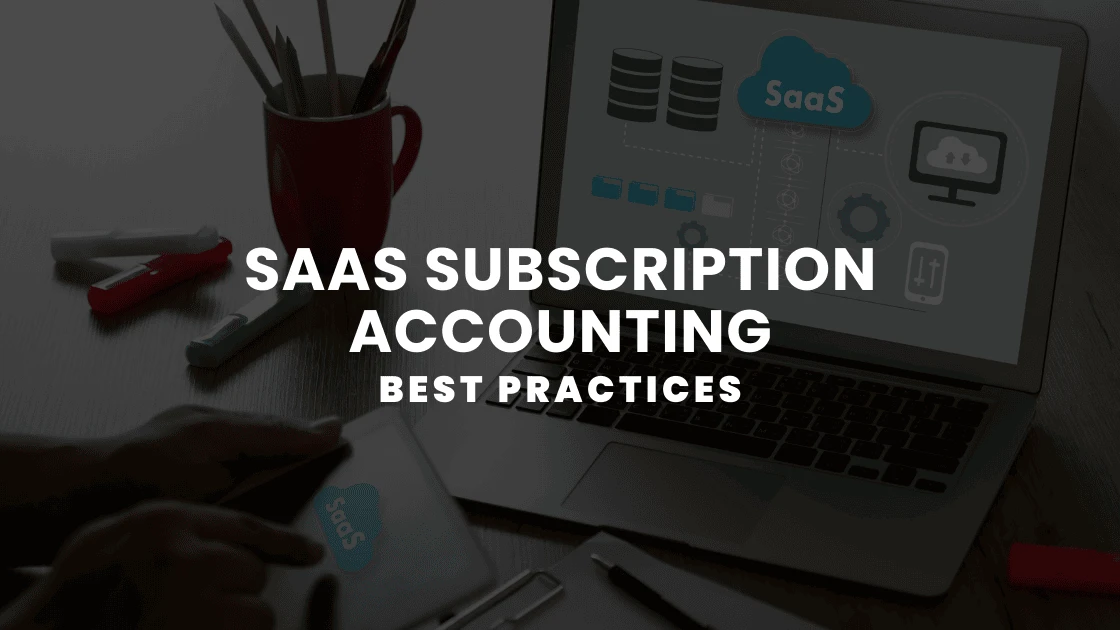September 13 2024 | By Raza Agha | 8 minutes Read

Why Consistent Financial Reporting Matters
1. Enhances Financial Accuracy
2. Facilitates Better Decision-Making
Best Practices for Consistent Financial Reporting
1. Establish a Reporting Schedule
2. Use Standardized Financial Statements
3. Leverage Technology
4. Stay Compliant with Accounting Standards
Steps to Implement Consistent Financial Reporting in Your Small Business
1. Set Clear Financial Goals
Short-Term Goals
Long-Term Goals
2. Develop a Solid Financial Reporting Policy
Define Reporting Frequency
Establish Reporting Standards
Detail Roles and Responsibilities
Include Internal Controls
3. Invest in the Right Accounting Tools and Software
Choose the Right Software
Automate Repetitive Tasks
Integrate with Other Systems
Regularly Update Software
4. Outsource or Consult with Financial Experts
Final Thoughts
Running a small business can be both rewarding and challenging. Between managing day-to-day operations, marketing, and customer relationships, financial management often takes the backseat. In fact, maintaining consistent financial reporting should be at the forefront.
But what does consistent financial reporting mean, and why is it so important for small businesses? Consistent financial reporting refers to the regular and systematic recording of financial transactions, ensuring that all financial data is accurate, transparent, and up-to-date.
This involves following a set of principles and standards that enable businesses to present their financial information in a way that is reliable and comparable. Keep reading to explore the benefits of consistent financial reporting, best practices, and steps to follow!
Here’s why it’s important;
Consistent financial reporting boosts financial accuracy. When financial data is recorded periodically, it reduces the chances of errors, discrepancies, and omissions.
Inconsistent or haphazard financial reporting, on the other hand, can lead to costly mistakes, such as overestimating profits, underreporting expenses, or even facing penalties from tax authorities.
By ensuring all financial transactions are regularly documented, small businesses can gain a clear and accurate picture of their financial health. This not only helps in day-to-day decision-making but also builds trust with investors, creditors, and stakeholders.
Consistent financial reporting ensures that all relevant financial information is reported clearly, enabling small business owners to make informed decisions. For example, understanding revenue trends, cost structures, and profit margins can help determine where to allocate resources or identify areas for cost-cutting.
All in all, it allows business owners to forecast more accurately, set realistic financial goals, and develop strategies to achieve them. Without consistent financial reporting, decision-makers may rely on outdated or incomplete information, leading to decisions that could negatively impact the business’s growth and sustainability.

Here are some best practices you can follow to ensure consistency in financial reporting;
One of the first steps to achieving consistent financial reporting is to establish a regular reporting schedule. Decide how often financial statements should be prepared and reviewed—monthly, quarterly, or annually.
This depends on the size of your business and the complexity of your financial transactions. Sticking to a set schedule helps ensure that all relevant financial information is reported consistently and reduces the likelihood of errors or oversights.
Standardized financial statements are another critical element in maintaining consistent financial reporting. Ensure that all financial reports follow a uniform format and include the same categories, such as income, expenses, assets, liabilities, and equity.
This consistency makes it easier to compare financial performance over different periods, identify trends, and spot any anomalies.
Modern accounting software can greatly simplify the process of consistent financial reporting. Tools like QuickBooks, Xero, and FreshBooks help automate many aspects of financial management, from invoicing to expense tracking and payroll.
By using technology, small businesses can reduce the risk of human error, improve accuracy, and save time on manual reporting tasks.
If you want to report your finances in a manner that is beneficial for your business, you must make compliance with accounting standards, such as Generally Accepted Accounting Principles (GAAP) or International Financial Reporting Standards (IFRS), a vital part of it.
These standards provide a framework that ensures all financial information is reported transparently and uniformly. Staying compliant not only builds credibility with stakeholders but also helps avoid legal issues or penalties.

Implementing consistent financial reporting in a small business is a step-by-step process that requires careful planning and effort. Here are some steps you could follow;
The first step to implementing consistent financial reporting is to set clear and specific financial goals for your business. These goals should align with your overall business objectives and be broken down into short-term and long-term targets.
These might include improving cash flow, reducing expenses, or achieving a specific revenue target within the next quarter. Setting these goals provides immediate focus and helps you prioritize your financial reporting efforts.
For example, if your goal is to reduce expenses, you’ll need to closely monitor and report on expense categories, ensuring all relevant costs are accurately tracked and analyzed.
Long-term goals, such as expanding into new markets, increasing profit margins, or achieving sustainable growth, require more strategic financial planning. Consistent financial reporting allows you to measure progress towards these goals over time, identify trends, and make necessary adjustments to stay on track.
By setting clear financial goals, you create a roadmap for your financial reporting, ensuring all relevant financial information is reported in a way that supports your business’s success.
A financial reporting policy is a formal document that outlines the procedures and guidelines for managing financial data within your business. Developing a policy is crucial for maintaining consistency and accuracy in financial reporting.
Determine how often financial reports will be generated (monthly, quarterly, or annually) and specify the types of reports required, such as balance sheets, income statements, cash flow statements, and expense reports. The frequency of reporting should be based on your business needs, the volume of transactions, and regulatory requirements.
Outline the standards and principles that will guide your financial reporting, such as Generally Accepted Accounting Principles (GAAP) or International Financial Reporting Standards (IFRS). This ensures that all financial information is reported consistently and complies with legal and regulatory requirements.
Clearly define the roles and responsibilities of team members involved in the financial reporting process. Specify who is responsible for data entry, report preparation, review, and approval. This reduces the risk of errors and ensures accountability at every stage of the reporting process.
Implement internal controls to safeguard the accuracy and integrity of financial data. For example, you can establish procedures for reconciling bank statements, verifying invoices, and cross-checking financial records.
Technology plays a crucial role in achieving consistent financial reporting. Investing in the right accounting tools and software can simplify financial management, reduce errors, and save time.
Select accounting software that fits the specific needs of your business. Look for features such as automated invoicing, expense tracking, payroll management, financial forecasting, and customizable reporting templates. Tools like QuickBooks, Xero, or FreshBooks are popular choices for small businesses due to their user-friendly interfaces and strong capabilities.
Use automation to organize repetitive tasks, such as data entry, bank reconciliations, and report generation. Automation not only reduces the risk of human error but also frees up valuable time for you and your team to focus on more strategic activities.
Ensure your accounting software integrates smoothly with other systems your business uses, such as point-of-sale (POS) systems, customer relationship management (CRM) software, and inventory management tools. Integration eliminates the need for manual data transfers, further boosting the consistency and accuracy of your financial reporting.
Keep your software updated to take advantage of new features, security enhancements, and bug fixes. Regular updates ensure your financial data is protected and that you are compliant with the latest accounting standards and regulations.
If your small business lacks the resources or expertise to handle financial reporting internally, consider outsourcing or consulting with financial experts.
A qualified accountant or financial advisor can provide valuable guidance on maintaining consistent financial reporting. They can help set up your accounting system, ensure compliance with regulations, and provide insights on financial management best practices.
On the other hand, if hiring full-time staff is not feasible, outsourcing to a bookkeeping service can be an effective solution. Professional bookkeeping services can manage day-to-day financial tasks, such as data entry, report preparation, and reconciliation, allowing you to focus on running your business.
Consistent financial reporting is important if you are aiming for sound financial management for your small businesses. It ensures that all relevant financial information is reported accurately, enabling better decision-making, enhancing financial accuracy, and supporting long-term growth.
By establishing a reporting schedule, using standardized financial statements, utilizing technology, and staying compliant with accounting standards, small businesses can achieve consistent financial reporting and build a solid foundation for success.
Embracing these practices may seem like a daunting task initially, but the benefits far outweigh the effort. Whether you are a startup or an established small business, consistent financial reporting is essential for maintaining financial health and achieving sustainable growth.
If it gets too much to handle, remember you could always lean on financial experts to get your books in order and maintain regular reports that make it easier for you to devote more time to your business. Monily’s experts can help you with that and much more, allowing you access to various AI and FinTech platforms and integration capabilities. Reach out to learn more!
Subscribe for business tips, tax updates, financial fundamentals and more.
MORE BLOGS

Running a SaaS business can look simple from the outside. Customers sign up, pay monthly or yearly, and keep using the product. Quite straightforward, right? Behind […]
Learn More →
Revenue is the heartbeat of any SaaS business. But how and when that revenue shows up on your books can change everything, from investor confidence to […]
Learn More →
If you’re a small business, we will absolutely get it if you say you’re having a hard time choosing a payment platform for your company. And […]
Learn More →